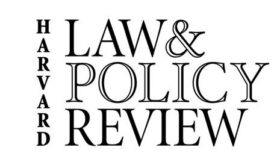By Mark Wilson
One question that has arisen all too infrequently in discussions of California’s Proposition 8 is, “What effect would such a ruling have on DOMA?” The Defense of Marriage Act (DOMA), chaptered at 1 U.S.C. § 7, defines “marriage” for federal purposes as “a legal union between one man and one woman as husband and wife.”
Judge Jeffrey S. White, who presides in my ‘hood (the U.S. District Court for the Northern District of California), recently found that DOMA is unconstitutional because (1) it “treats gay and lesbian individuals differently on the basis of their sexual orientation,” (2) laws classifying gays and lesbians differently from heterosexuals are subject to heightened scrutiny, and (3) as such, DOMA fails review both because it is not substantially related to an important government objective, and because the government’s proffered objective (“promoting procreation within marriage”) is not “a legitimate reason to exclude same-sex marriages from federal recognition.” (See Golinksi v. Office of Personnel Management.)
Judge White’s opinion should be lauded as an example of how constitutional interpretation can, and should, change as the world changes. As late as 1986, the DSM III — the third edition of the diagnostic manual of the psychology field — considered homosexuality a psychological disorder. Historically, homosexuality has always been around (even in 1789!), but the idea of homosexuals marrying each other has never been prevalent, likely due to the furtive nature of homosexuality, as well as the historical child-bearing and property-based bases for heterosexual marriage. With increasing tolerance of homosexuality comes a demand that society recognize the legitimacy of same-sex relationships through marriage. Loving v. Virginia provides an analogous framework: interracial relationships have certainly existed in the United States ever since “race” was invented in the 18th century. But due to the taboo surrounding such relationships, marriage was hardly an option.
Judge White’s analysis of DOMA is distinct from Judge Reinhardt’s analysis of Proposition 8 in Perry v. Brown because the former classifies homosexuals as a suspect class that “deserves heightened constitutional scrutiny.” Neither Judge Reinhardt nor Judge Vaughn Walker went this far, ostensibly a tactical decision should the Proposition 8 cases reach the U.S. Supreme Court (which could easily parry such a decision by deciding that the lower court applied the wrong standard). While Judge White does the rational basis review as well — and finds that DOMA does not pass it — the meat of the argument lies in establishing homosexuals as a suspect class, thus opening the door for the meatier review. Now that same-sex marriage restrictions are pounding at the door of federal appellate courts, we can go to the more philosophical heart of the matter: homosexuals should be a suspect class, and laws restricting their behavior should be subjected to heightened scrutiny due to the history of animus toward them.
For now, the judgment applies only to the Office of Personnel Management and Ms. Golinski. DOMA is distinct from Proposition 8, but the two are not unrelated. In the long term, it appears that laws prohibiting same-sex marriage have fewer days ahead than they have behind.
